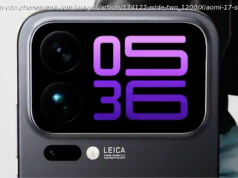With four seasons of the sci-fi anthology series now in the books, it’s time to stack up the best an
In my eyes, « Fifteen Million Merits » remains the gold standard for what a Black Mirror episode can and should be. Featuring a pre- Get Out Daniel Kaluuya in the lead as Bing and Downton Abbey ’s Jessica Brown Findlay as Abbi, this episode is still possibly the furthest into the future the show has gone.
Imagine a world where humans (or at least the ones we meet inside this compound) are all cogs in a system, and workers ride bikes to generate power and receive virtual « merits. » They can spend those merits on all manner of content or virtual possessions, or simply use them to skip the mandatory ads and commercial that pervade peoples’ every waking moment, even in their tiny, screen-filled bedrooms. Sound familiar?
Kaluuya shines as the everyman who falls in love only to have his heart broken when Abbi goes on a popular American Idol/X-Factor parody talent show. After singing beautifully, the judges instead send her, numbed with drugs, into a life in the porn industry. Little details, like the competition staff giving contestants juice boxes of « Cuppliance » before going onstage, really make this one for me. The episode also features one of my favorite endings; it’s deliberately ambiguous to leave you with a sense of uncertainty. Given how often subsequent episodes of the show have come back to this episode’s iconic song, « Anyone Who Knows What Love Is (Will Understand), » it’s clear how integral « Fifteen Million Merits » was in building the foundation upon which so many other Black Mirror episodes rest.
Of Black Mirror ‘s two anthology episodes, this season two finale is far and away the superior one. Built around three interwoven stories anchored by Jon Hamm, Oona Chaplin, and Rafe Spall, « White Christmas » is that rare episode where a number of ambitious elements all work perfectly together. On the tech side, the episode tackles the Internet of Things and smart home devices, our internet culture of muting and blocking people, and a voyeuristic spin on online dating. At the same time, the episode manages to play with the concepts of memory and time as its plots come together, building to some truly walloping twists that leave the viewer awestruck and devastated several times over. Without spoiling too much, it’s safe to say this is not a Christmas story with a happy ending.
Still among the most emotionally poignant episodes of Black Mirror, « Be Right Back » is a profound examination of mortality and loss. Hayley Atwell and Domnhall Gleeson are phenomenal as Martha and Ash, whose picturesque life is torn apart when Ash dies suddenly in a car accident. It’s the first episode to introduce the idea of a sentient digital consciousness after you die, expanded upon in subsequent episodes like « San Junipero » and « Black Museum. » Martha tries out a new service first allowing her to message a virtual clone of her dead husband and then to live with a synthetic version of him. Martha grapples with the emotional weight of how this unnatural relationship affects her family and her own grieving process. Even in an episode centered around a synthetic being, the issues at play feel innately human.
Season three’s standout episode can serve as a companion piece of sorts to « Be Right Back, » taking a refreshingly hopeful look at what happens to our consciousness when we die. Starring Mackenzie Davis and Gugu Mbatha-Raw as residents of a quaint seaside town that keeps finding itself in different decades, « San Junipero » is one of the few Black Mirror episodes that leaves you with a warm, fuzzy feeling. The twist of sorts in the episode, well done as it is, seems less consequential on the whole compared to the relationship at the core of the story and how technology can free people to live the lives they never could in the real world.
To my friend’s credit, when he introduced me to the series a few years back he didn’t start with « The National Anthem. » Instead, he threw us right into « White Bear. » This frantic, haunting episode contains what is still my favorite twist in the series; it follows a woman with amnesia who wakes up in unfamiliar surroundings and stumbles around a strange world looking for answers. I won’t ruin the ending, but « White Bear » is a prime example of how a Black Mirror episode can pull off an ambitious concept and leave you well and truly wrecked by the time the credits roll.
The best episode of season four (sorry « Hang the DJ, » you were a close second) goes to the trippy virtual space odyssey that is « U. S. Callister. » On board the titular Star Trek -inspired vessel captained by Robert Daly (Jesse Plemons), the crew goes on heroic missions across a virtual galaxy that’s just plain fun to inhabit for an hour or so, especially once a strong cast, including Cristin Milioti and Jimmi Simpson, start catalyzing the plot. Nothing is what it seems in this episode, which tackles tough themes like workplace harassment and power dynamics blended with virtual reality tech and builds to an exhilarating climax. « U. S. Callister » is just a damn enjoyable episode of television.
A classic from the first season, « The Entire History of You » serves as the technological basis for much of the brain implant tech we see in other episodes. It’s a deeply disturbing portrayal of Toby Kebbell as a married lawyer whose compulsion to analyze and replay every interaction in his life ultimately ruins it. Upon re-watch, this is still one of the episodes that hits closest to home in how technology impacts our lives and the self-destructive power it can hold.
It’s somewhat surprising that Black Mirror hasn’t devoted a full episode to online dating until now, but this one was worth the wait. « Hang the DJ » stars Joe Cole and Georgina Campbell as two singles living in a community where an algorithm determines who they date and how long each relationship lasts as it calculates their ultimate soulmate. The episode is a clever and sincere examination of dating apps pushed to the extreme, though it’s another of the handful of episodes that ends on a happy note rather than a disturbing one.
Written by Mike Schur ( Parks & Recreation, Brooklyn Nine-Nine, The Good Place) and Rashida Jones, this one is also known as the social media episode . « Nosedive » is an intensely relatable portrayal of how social media likes and scores could one day be used as a draconian class system a la Brave New World. Scores determine everything from what job you can get to who you can marry. Bryce Dallas Howard is fantastic as Lacie Pound, a go-getter with middling social score who will do anything to up her standing. This is a great episode to get people into the series and illustrate what the show aims to do. However, on re-watch it doesn’t stand out quite as much. The ending plays it disappointingly safe instead of delving deeper into the darker corners of the world the episode has created. Maybe most importantly, the MeowMeowBeenz episode of Community dissects the same concept and does it far better in half the time.
The first episode of Black Mirror is a polarizing one. What better way to introduce viewers to a disturbing sci-fi series than with a public display of bestiality? « The National Anthem » follows British Prime Minister Michael Callow (Rory Kinnear) over the course of a day after a member of the royal family is kidnapped. The terrorists’ one and only demand for the safe return of Princess Susannah: Callow has to have sex with a pig live on national television. Black Mirror has a knack for making eerily correct predictions, but Charlie Brooker clarified that he had no idea about the similar allegations against former PM David Cameron when he wrote it.
« Playtest » is one of the trippiest episodes of the series. When a happy-go-lucky American traveler, Cooper (Wyatt Russell), signs up for an odd job to test out an augmented reality video game, the company installs a spinal implant and sends Cooper into an old mansion alone. While the episode certainly could’ve been more creative than « guy goes into a haunted house and starts seeing scary holograms, » it’s a solid premise with some decent personal drama to give the story some weight, not to mention a gut punch of an ending.
The final episode of season three stars Kelly Macdonald as a London police detective investigating mysterious murders. « Hated in the Nation » is a bit long, but worth your attention. The cohesive thriller manages to pack in commentary on a bunch of different technologies including drones, government surveillance, and passive-aggressive social media #activism. Oh, and killer robot bees. Once again, Black Mirror was a little too on-the-nose.
This Jodie Foster-directed episode stars Rosemarie DeWitt as a well-meaning mother who installs an « Arkangel » parental monitoring and control chip in her daughter’s brain, which she controls via tablet.






